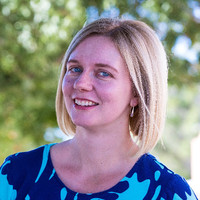The pause was brief, but stark, when some of us realized that a square on the Zoom was located in Minneapolis. There wasn't much to say as a reaction that hadn't been said before. The awkward dance feels as normal now as debating the right time to make eye contact and say hello to someone heading down the same hallway as you.
We have established norms for watching horrors unfold around us.
Someone mentioned that I had been to a vigil the previous evening for the murder we saw this week. I nodded. There in the park I stood, watching the tropes play out. Staying quiet for a moment. Saying the name. Asking the same questions. Why aren't we striking? What are the next steps? What violence begets violence?
Unlike Renee Good, I'm not a poet. But I like to think we might have ended up in a workshop together in a different world, writing about a dystopia for the thrill of it. We would have circled the same sentences, wondering whether words like "horrifying" or "disgusting" carried the right tenor for the scene. We might have debated metaphors. But I think we would have agreed on one thing. We would have called it murder. We would have named things as they are.
Earlier in the week, I sat in on another Zoom where a list of counterpoints was shared. Talking points for elected officials. Statistics to deploy. Notes about farmers. Numbers of companies that have gone bankrupt. Ways to chip at the narrative whirling around us. What struck me was not what was said, but what was missing. There was no discussion of words that could build a future. No language for how we live differently after the murder of Good.
There is some of that now, in the form of tributes and statements. But instead of reactionary homage, I want to build on Good.
In the world I want to live in with you, Good would have lived. Good would never have worried about health insurance. If she were sick, she would have received the care she needed, without calculation or fear. Her survival would not have depended on paperwork, timing, or luck.
In the world where Good could have lived among us, scientists would be working on medicines not yet invented. There would be trials for treatments that ease suffering we do not yet understand. We would be hopeful enough to learn rather than destroy, to invest rather than punish.
In the world I want to live in with you, we would see good in one another and build safeguards that allow people to reach their potential. We would understand that sickness, accidents, and mistakes are part of being human, and that none of them should cost us our shared humanity.
In the good world we could live in, people would provide for their families through work that grows as they grow in skill and experience, work that sustains them within society rather than grinding them down. In that world, dignity would not be conditional, and survival would not be earned through suffering.
This is not naive. It is not sentimental. It is a refusal to accept that murder is an unavoidable feature of modern life. It is a refusal to let language dull our response or have vague policy replace moral clarity and a clear path forward, even in little steps.
Renee Good was murdered. Naming that truth is the beginning, not the end.
Because the murder of Good should never become normal. The future we owe her demands more than silence and more than counterpoints. In tribute, we should be brave enough to imagine a world where goodness is not so easily extinguished and committed enough to build it.
Cassie McClure is a writer, millennial, and unapologetic fan of the Oxford comma. She can be contacted at cassie@mcclurepublications.com. To learn more about Cassie McClure and read features by other Creators Syndicate writers and cartoonists, visit the Creators Syndicate website at www.creators.com.
Photo credit: Greg Rakozy at Unsplash






View Comments